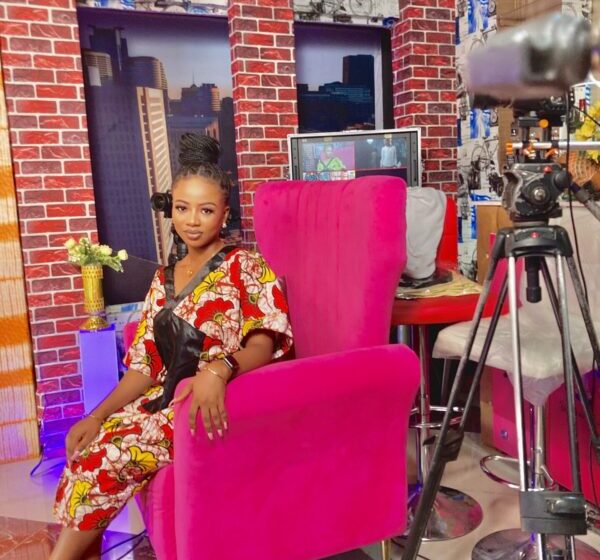SPOTLIGHT: Bolanle, the Yoruba culture advocate preserving Nigeria’s history for future generations

Step into the realm where tradition dances with modernity, guided by an impassioned advocate of Yoruba culture.
This luminary carries the torch of a heritage steeped in centuries of wisdom, artistry, and spirituality, breathing vitality into the very essence of Yoruba identity.
With an unwavering reverence for the past and a keen eye on the future, this advocate navigates the intricate fabrics of rituals, folklore, language, and art, weaving a narrative that transcends time.
This interview with CrispNG unveils the captivating journey of Bolanle, illuminating her tireless efforts to preserve and promote the essence of Yoruba culture.
Through her impassioned advocacy, she invites us to embrace and celebrate the beautiful Yoruba heritage that continues to resonate across boundaries and generations.
Can we meet you?
My name is Yusuf Bọ́láńlé. I am from Lagos, Nigeria. I am a writer, award-winning storyteller and freelance presenter. Also, I am passionate about Yorùbá culture and take great pride in creating awareness about the value of Yorùbá culture.
What inspired you to become an advocate for Yoruba culture?
My background and upbringing inspired me. I got the inspiration from my paternal grandmother, she was a lover of history and culture.
Could you highlight key achievements or initiatives you’ve undertaken to promote this culture?
One of my greatest achievements is imparting knowledge. Also, I see people using my content as a research institute for their various research projects.
How does your work in promoting the Yoruba culture impact the community or society?

Impact is made through documenting history for the next generation and creating an archive of art and vital information so that the next generation can have access to information surrounding Yorùbá history.
Also, by spending time with children in my environment I teach them the importance of Yorùbá culture.
Can you share the challenges you’ve faced in promoting this culture and how you’ve overcome them?
One of the major challenges I faced and still facing is the lack of materials and unavailability of historical resources to help my research further.
In what ways do you collaborate or engage with other cultural advocates or organizations?
I engage with them by promoting their works, participating in some activities and donating.
What strategies do you employ to engage a broader audience in understanding and appreciating Yoruba culture?
My short-term strategy involves using social media to pass information about Yorùbá history, culture and traditions across the globe.
My long-term strategy; In the near future I want to create a linking bridge between the Yorùbá youth in Nigeria, across West Africa and in the major part of the world.
This will help by bringing development and solidarity among us.
INTERVIEW: Rejection is my major challenge as an upcoming artiste, says Gvin Champp
Could you discuss any ongoing projects or plans to further promote and preserve this culture?
There are many ongoing projects and plans we are trying to execute which I wouldn’t want to disclose now.
WAIT FOR THE ANNOUNCEMENT
How do you navigate the balance between maintaining authenticity and adapting to evolving perspectives when promoting Yoruba culture?
I am still trying to navigate through it and find a balance. But in the meantime, all I do is invest a modicum of effort into understanding the world around me.
At the same time, delving into Yorùbá culture knowing that it is a phenomenon that possesses a life of its own.
What impact do you hope to achieve through your efforts in promoting this culture?
One of my major aims is to ensure that Yorùbá culture, especially the language, does not go into extinction.
“Language is the soul of culture” According to Akìnwùmí Ìṣọ̀lá.
The role of language in culture can’t be overemphasized. There is no culture without language likewise there’s no language without culture.
Language is more than just mere words, it’s a phenomenon that is embedded in culture embed.
How can individuals or institutions support and contribute to the promotion and preservation of this culture?

They can do this in so many ways including creating awareness and also saturating the internet with Yorùbá content. By sponsoring and promoting Yorùbá writers. Also, creating a research institute will help in the documentation of Yorùbá history, culture and traditions. The list is endless.
Are there any misconceptions about the culture that you’d like to address?
One of the misconceptions I’d like to address is the fact that Yorùbá language is addressed as a vernacular. I feel that is grossly inappropriate and misleading.
The second misconception is about our Yorùbá spirituality and terming it as ‘EVIL’.
Only a narrow-minded ethnocentric person would define reality on his terms and project his own experience and limitations onto others.
Yorùbá spirituality isn’t evil. Our spirituality is our way of life which encompasses our philosophy, culture, traditions, art, music, stories, history, medicine e.t.c
Meet Salome Samuel, the multifaceted entrepreneur combining fashion, influence, and academic
What advice do you have for young people?
My advice to my fellow young people out there is that we should see our culture as a vital component of life.
And also, recognize the importance of our history and the crucial role it plays in our daily activities.

